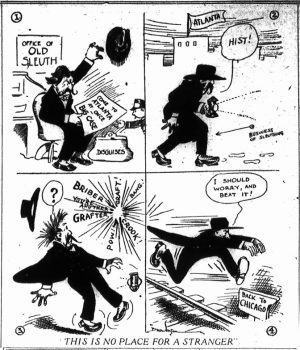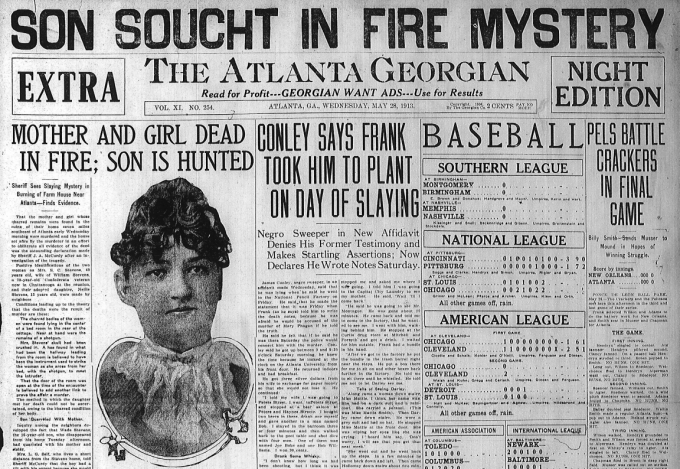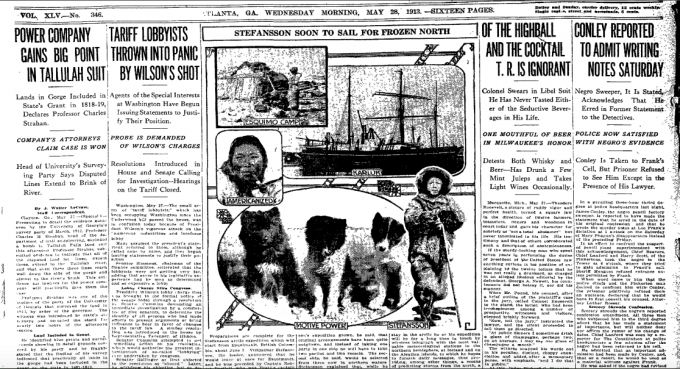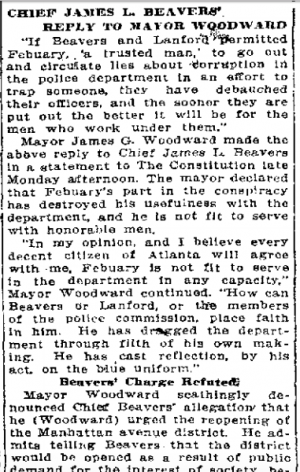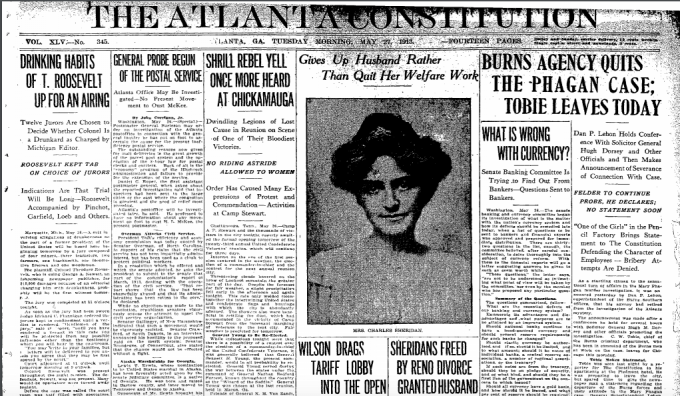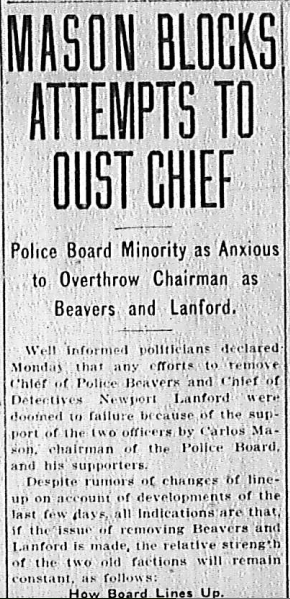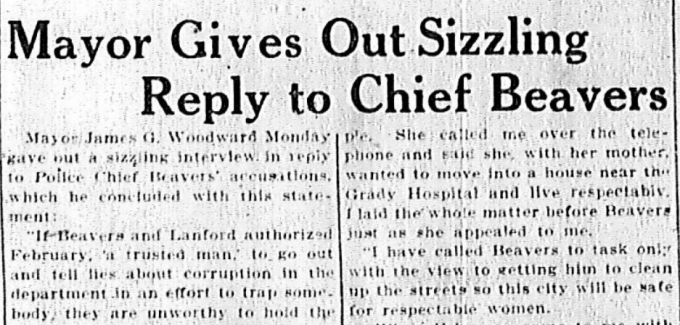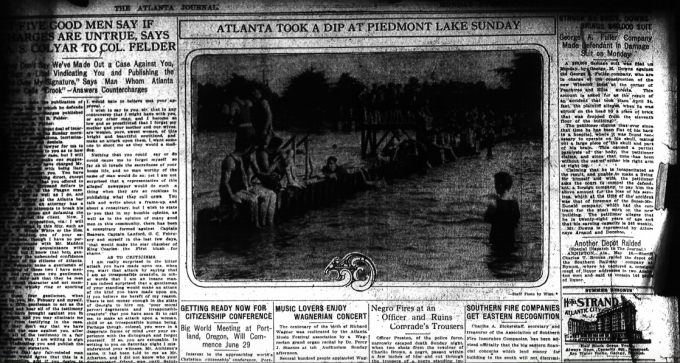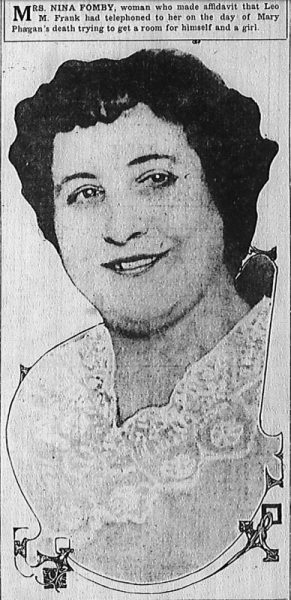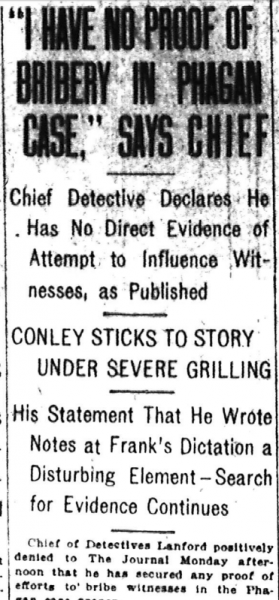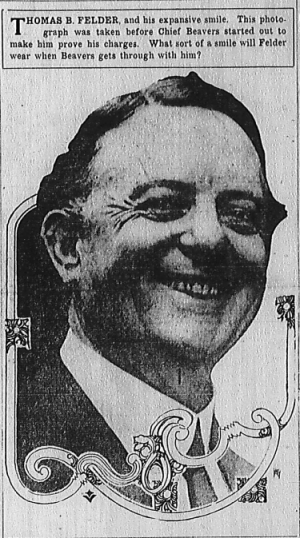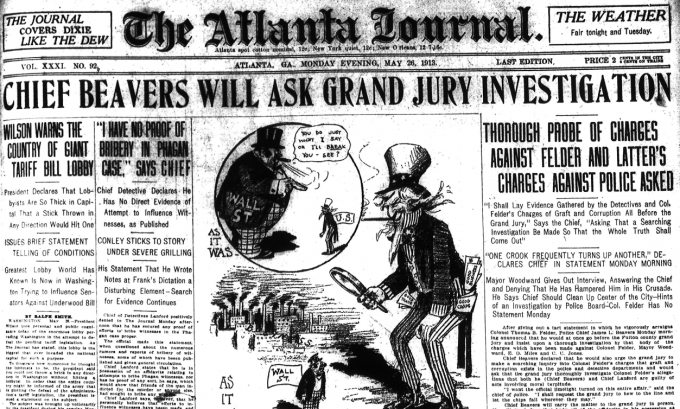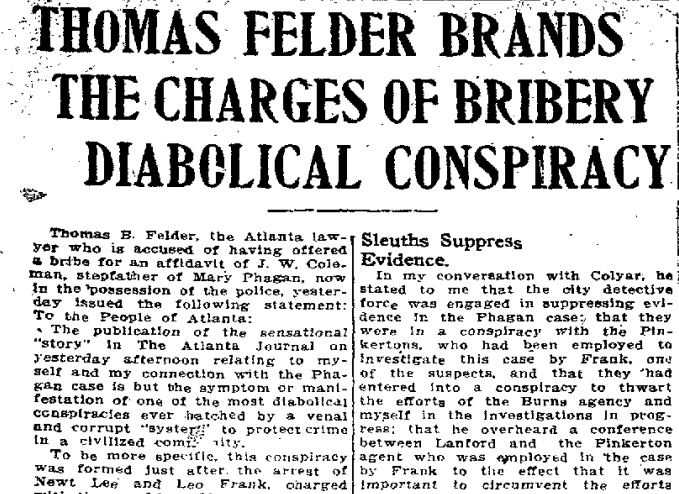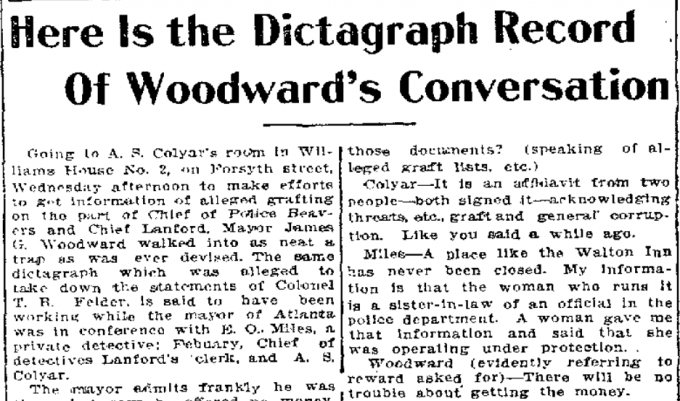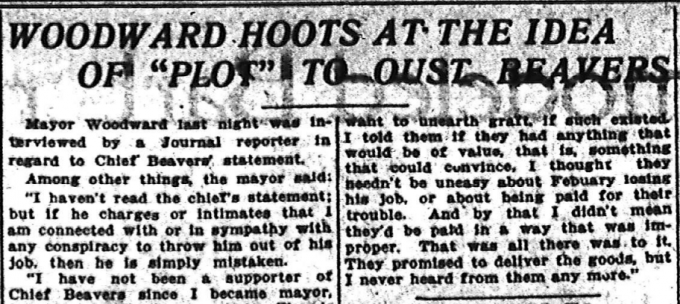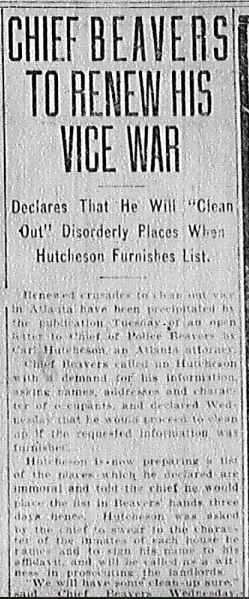 Another in our series of new transcriptions of contemporary articles on the Leo Frank case.
Another in our series of new transcriptions of contemporary articles on the Leo Frank case.
Atlanta Georgian
Wednesday, May 28th, 1913
Declares That He Will “Clean Out” Disorderly Places When Hutcheson Furnishes List.
Renewed crusades to clean out vice in Atlanta have been precipitated by the publication Tuesday of an open letter to Chief of Police Beavers by Carl Hutcheson, an Atlanta attorney.
Chief Beavers called up Hutcheson with a demand for his information, asking names, addresses and character of occupants, and declared Wednesday that he would proceed to clean up if the requested information was furnished.
Hutcheson is now preparing a list of the places which he declared are immoral and told the chief he would place the list in Beavers’ hands three days hence. Hutcheson was asked by the chief to swear to the character of the inmates of each house he names and to sign his name to his affidavit, and will be called as a witness in prosecuting the landlords.
“We will have some clean-up sure,” said Chief Beavers Wednesday. “When I get Hutcheson’s information I will prove that I am giving no protection to anybody. I would be glad to have every one report to me any resort that they might know of. It will help in the crusade. I will take speedy action against them all.”
Dorsey to Confer With Felder.
Solicitor General Hugh M. Dorsey declared Wednesday that he would confer with Colonel T. B. Felder relative to the proposed Grand Jury probe of his corruption charges against police officials and the counter charges of bribery made against him by the police.
Colonel Felder would not comment on the affair at all, other than to say he was not yet ready to issue his statement substantiating his sensational charges. Continue Reading →

